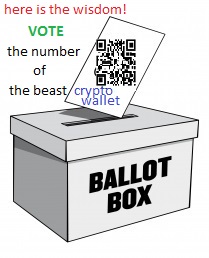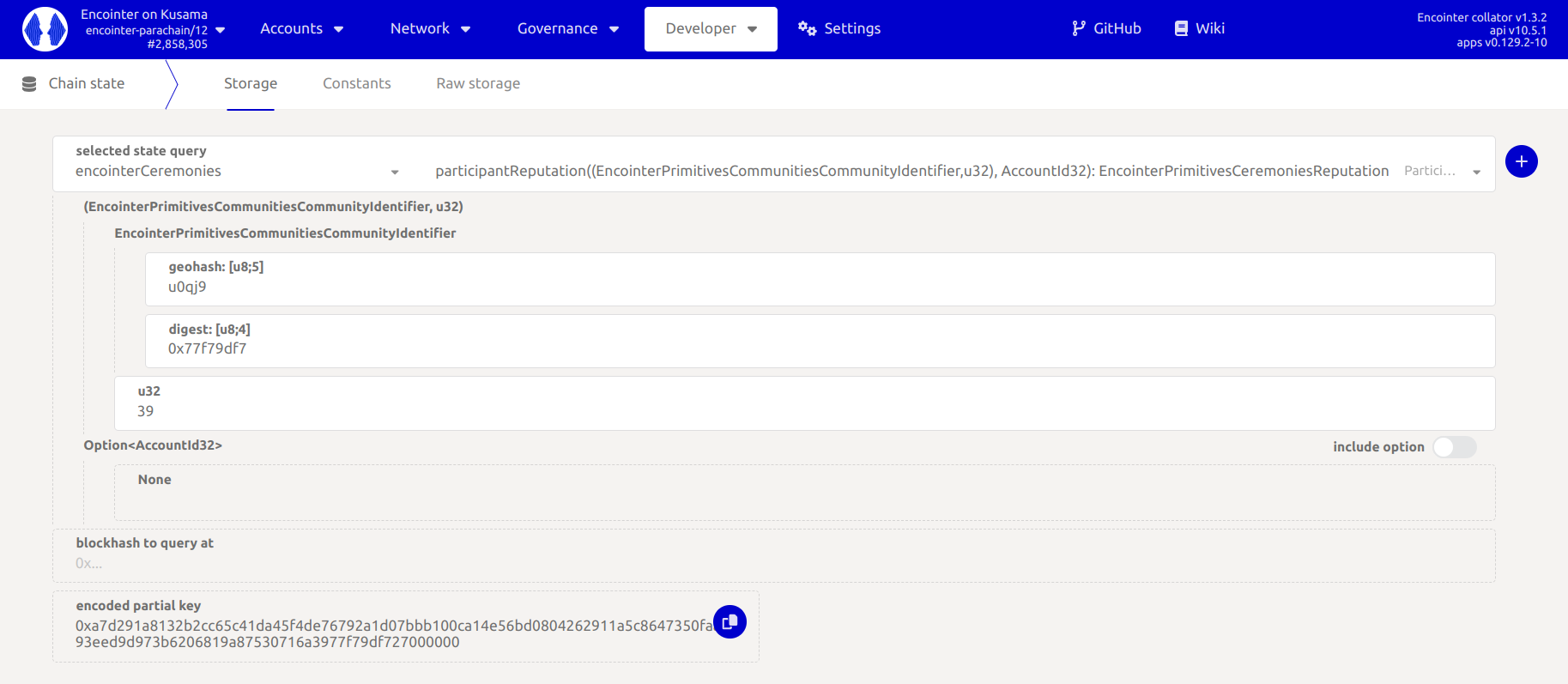I repost here the description of the proposed system in Dash community:
From:Stupids and Spies bought masternodes in order to stop governance. | Page 2 | Dash
You are among ordinary people who are not masternodes, and who may attend the same meeting in order to get their universal dividend. There is not ID card or Social Number required. And it is totaly safe, as long as you do not advertise eponymously (in your everyday life or in the internet) that you own a masternode . But even in the case you did the mistake and everybody knows that you are a masternode owner, the cryptoparty procedure allows you to appear masked, so you are safe that way (as long as, of course, you are not the only one masked and there are many other masked people that attend the same cryptoparty).
You will not attend the cryptoparty with your private keys! You participate by having several empty_wallets (their public keys) printed in QRcode. During the cryptoparty (which takes place in a closed door room where nobody is allowed to leave until the procedure ends) everyone puts one QRcode wallet in an envelope and then the envelope into a physical ballot box. Then all the wallets are extracted from the ballot box, they are counted, scanned, added in a digital list, and their number is expected of course to be found equal to the number of the attendees. If someone objects that the list of wallets is not equal to the number of attendees, or if he claims that his wallet is not into the list, then the voting is repeated, and until nobody objects (due to the possibility of voting repetition, everyone should have more than one printed QRcode wallets pre-created, so that he can re-vote in case an objection occurs). Finally, when there is no objection, everyone receives the final list of the valid wallets, the door opens and the cryptoparty finishes. All the wallets that are contained in the final valid list, can be considered now as a proof of individuality, that can be used online in the internet. And as long as every single attendee is allowed to object, this is considered as a decentralized (and unanimous) process, isn’t it?
For even more decentralization, many similar cryptoparties may be organized in several towns, as long as those cryptoparties are absolutely concurrent , and a web of trust among cryptoparties is established so that all the wallet lists of all the cryptoparties are recognized as proof of individuality. A web of trust among cryptoparties means that all the attendees of a specific cryptoparty sign whatever else cryptoparty they trust it is legitimate. This multi-signature may occur immediately after the creation of the final valid list of wallets, and just before the door opens.
Having your proof of individuality (I remind that you put it into the ballot box, so it is anonymized), you can now claim anonymously in the internet your masternodes, by signing the dash addresses of your masternodes with the private key of your empty_dash_address which you put in the ballot box, during the cryptoparty.
From: Proposal: Legal (Sept) | Page 2 | Dash
You will not travel with your private keys!
You will travel with a public key of your choice, printed in QR code. In the assembly, you put this printed public key into a physical ballot box. Everyone who attends the assembly do the same. Then the printed public keys are counted and expected to be equal to the number of people that attend the meeting. Everyone leaves the assembly having the list of all public keys. Those keys are considered now as a proof of individuality, that can be used for now on in the internet in order to prove that you are a real person. Many similar assemblies can be organized in several towns, as long as those assemblies are absolutely concurrent, and a web of trust among those assemblies is established. Having this proof of individuality in your hands, you can now claim in the internet your masternode votes, by signing the public keys of the masternodes with the private key of the printed public key you put into the physical ballot box.
So there is no fear for someone to steal you in the assembly. If you are afraid that someone may kill/arrest/kidnap you in the assembly, then you can give the printed public key that is about to be put in the ballot box to a lawyer, and send him to attend the assembly on your behalf!
“Proof of individuality” is a term identical to the term "Proof of Personhood", while “Universal Dividend” is similar to “Basic Income”.
The novelty of the above system is that it unites both the wealthy people (which own either a lot of money or a lot of votes) and the poor people in a single assembly.
The poor are incentivized to participate to the meetings because of the basic income, and the wealthy for recognizing their individuality and thus claim their voting power.
The wealthy people are protected in these assemblies because they do not present any ID, the meetings can be masked, and finally whoever remains a wealthy/known/unmasked person who is afraid to attend, he can indirectly participate to these meetings by hiring a representative (a lawyer, a delegate e.t.c.) who will transfer his acquired proof of personhood and his basic income to the wealthy. The representative will obviously be paid back for his service, a tip bigger than the basic income.


